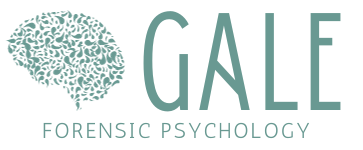Mental Health and Social Media – What to Know
Being social creatures, companionship, and connecting with others is essential and significantly impact our happiness and mental health. Social media connections can alleviate stress, anxiety, and depression while boosting self-worth, comfort, and confidence.
Conversely, lacking these connections can lead to severe emotional and mental health issues like increased anxiety and depression, to name only two. And while social media platforms promise to deliver these connections, they cannot replicate human-to-human real-time interactions.
The tactile experience of in-person collaborations causes the release of hormones that increase happiness, reduce stress, and help you feel healthier and more positive. Excessive social media use can bring on anxiety and depression while delivering feelings of loneliness and isolation, potentially exacerbating existing mental health issues.
The Downside
Among its most insidious faults, comparing one’s life to the exciting social media postings of others is a significant source of anxiety, depression, and envy. Pictures of exotic vacations, expensive toys, stunning physiques, and other enticing messages can trigger a negative emotional response.
Along with these unhealthy comparisons, cyberbullying and self-absorption lurk everywhere. Your impulse control is under constant assault from incessant notifications and the Fear of Missing out (FO MO).
Sleep
Research shows that social media users go to bed later, sleep worse and get less sleep, especially nighttime users. Screen time at night can stimulate your brain at a time when you want to relax and fall asleep.
Lack of sleep can pose serious health risks and inhibits our ability to function well in our daily lives. It is a problem you should take seriously.
Be Aware
It’s critical that each of us understand the potential pitfalls of these and make conscious decisions about our usage of these platforms. Otherwise, we risk this technology taking over our lives and steering us away from the people and things that are truly important.
Many individuals escape to social media as their “security blanket” to avoid anxious or awkward feelings, loneliness, or uncomfortable situations. We see it every day – people are seemingly obsessed with their devices and unable to communicate in real time.
If this sounds like you, perhaps it’s time to reevaluate how you spend your time.
What Are the Pluses?
It isn’t all bad; a lot of good things are available on these platforms.
Special interests abound on social media. You can find a support group for virtually any health condition, pets of all types, hobbies, professions, service groups, you name it, and you will find it somewhere online.
Almost anything you can do in the real world and many things you cannot are there to discover.
And perhaps most important is the connection social media can provide for families and friends to stay in touch across the miles. You can share pictures of grandchildren, vacations, gatherings, significant lifetime achievements, and everything that makes life available instantly, no matter where you are.
Final Thoughts
Social media platforms aim to keep you engaged for as long as possible and employ technologies that seem to foster a form of addiction. Many become obsessive users and find it virtually impossible to break their compulsive behavior.
So, what can you do to break your existing habit or avoid falling into the social media trap?
It all comes down to how you use and interact with these platforms.
What priority do they play in your life?
Like anything, social media can be a blessing or a curse.
It all depends on you and your choices.
Check out more of our blogs here.
